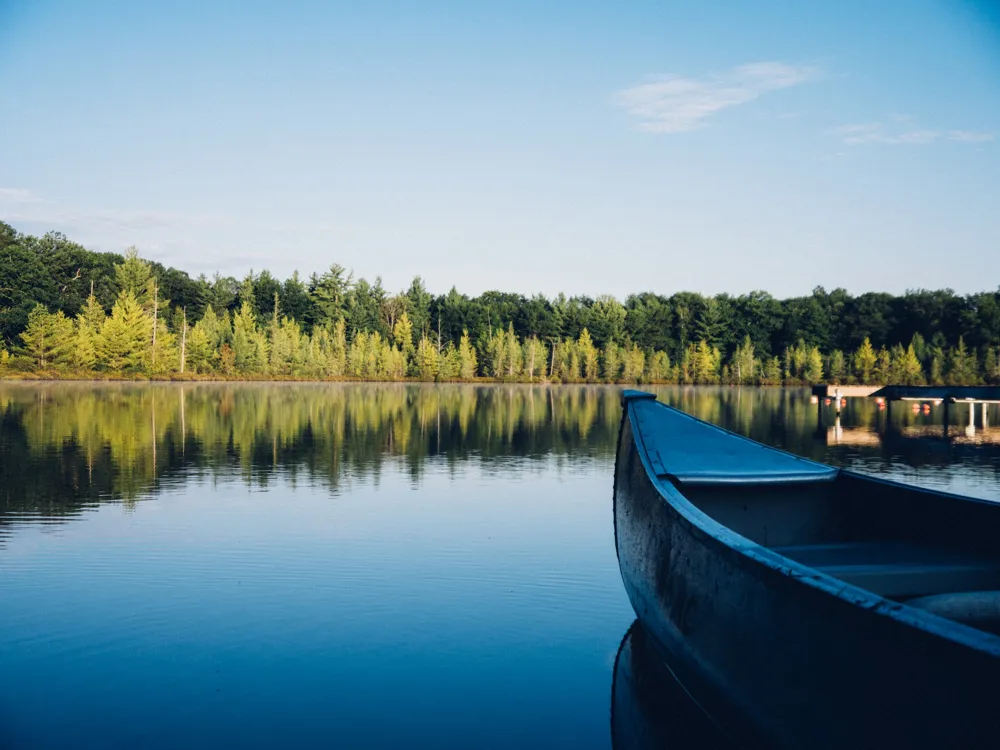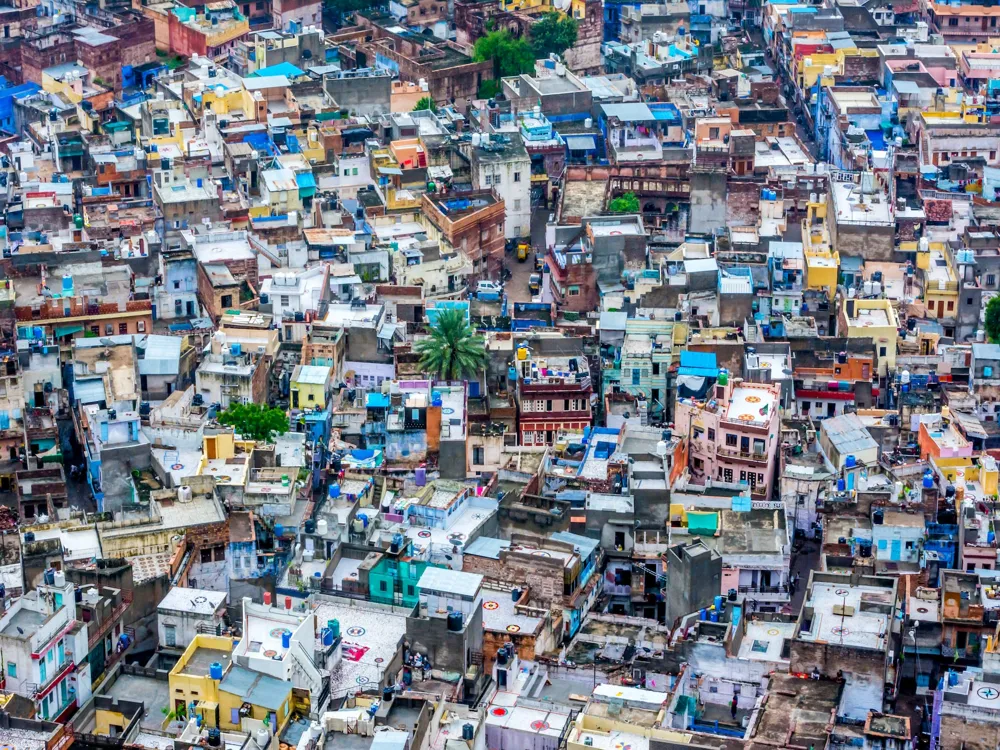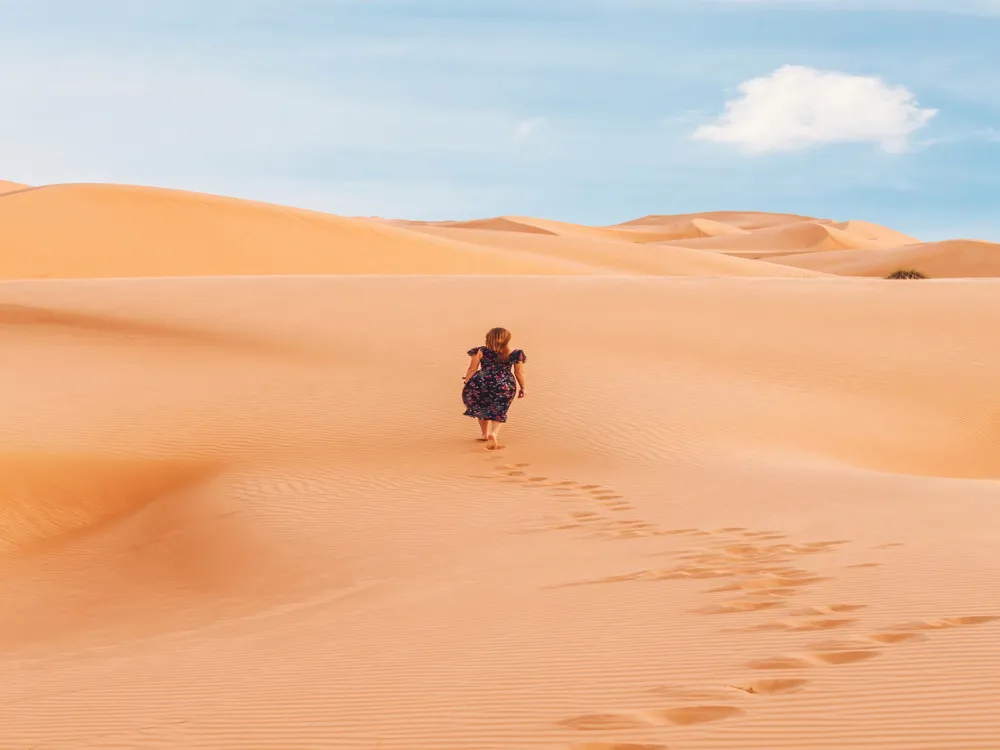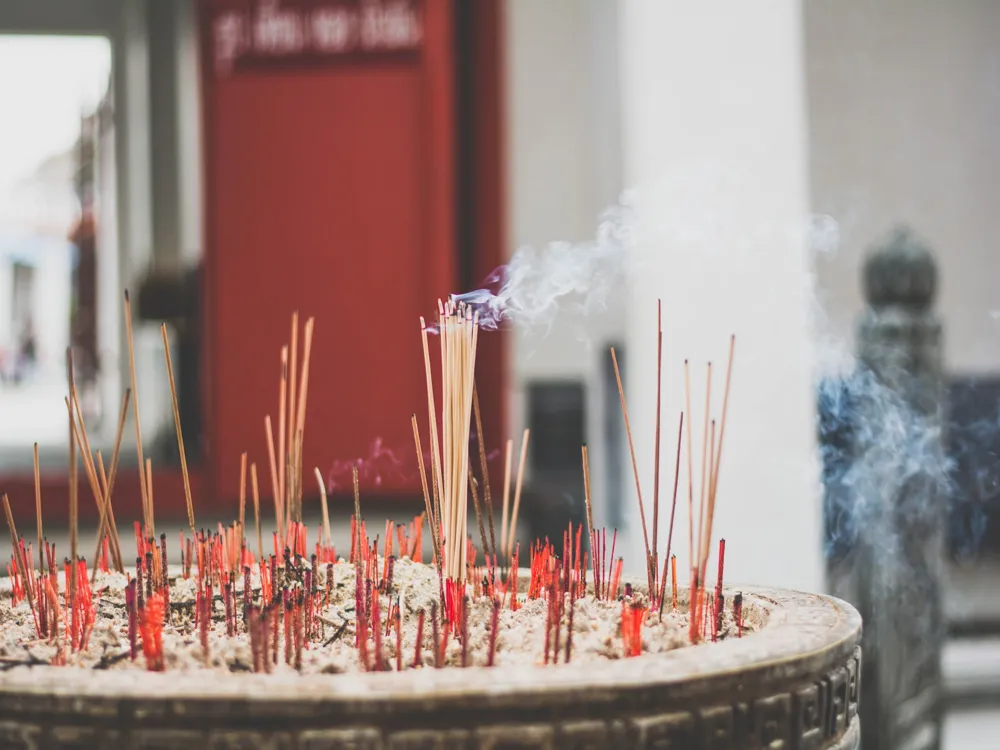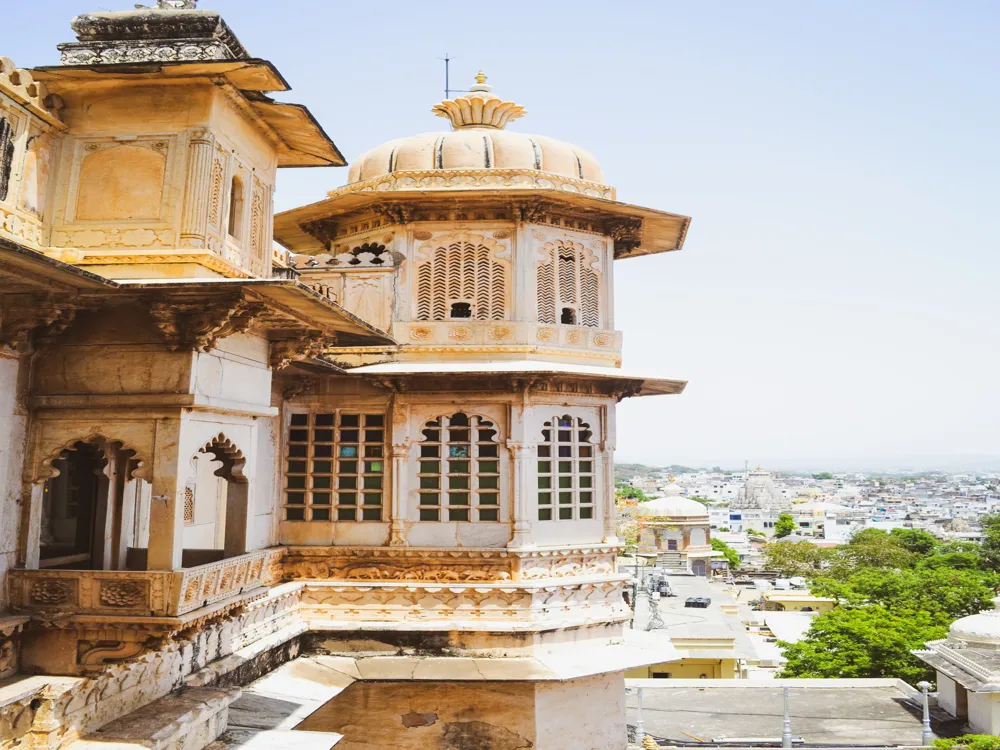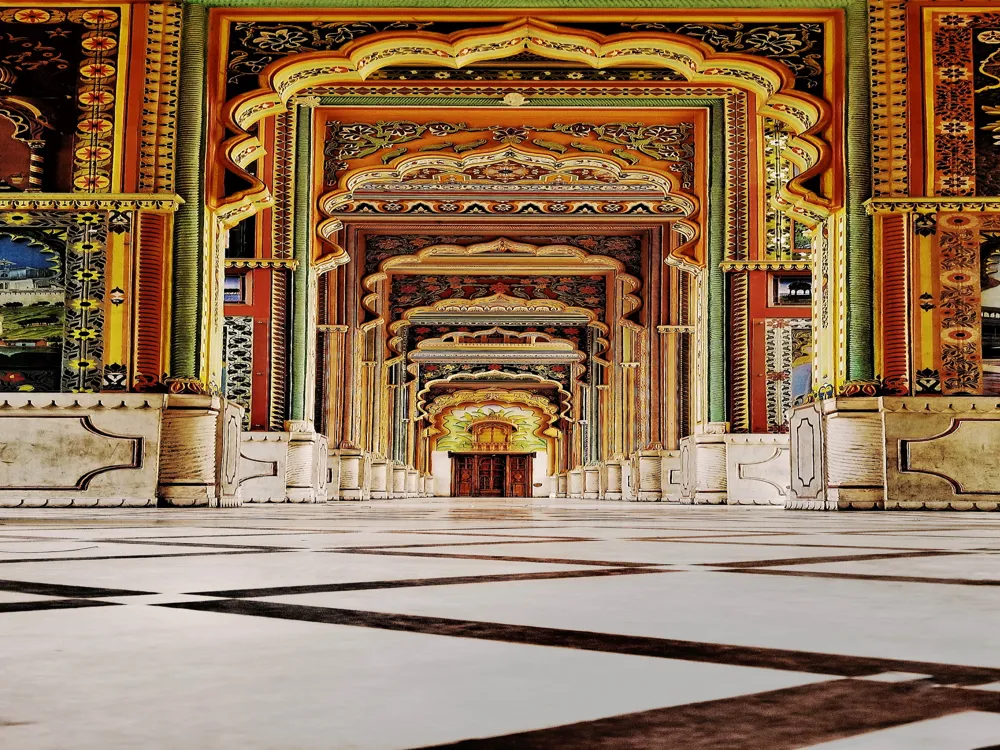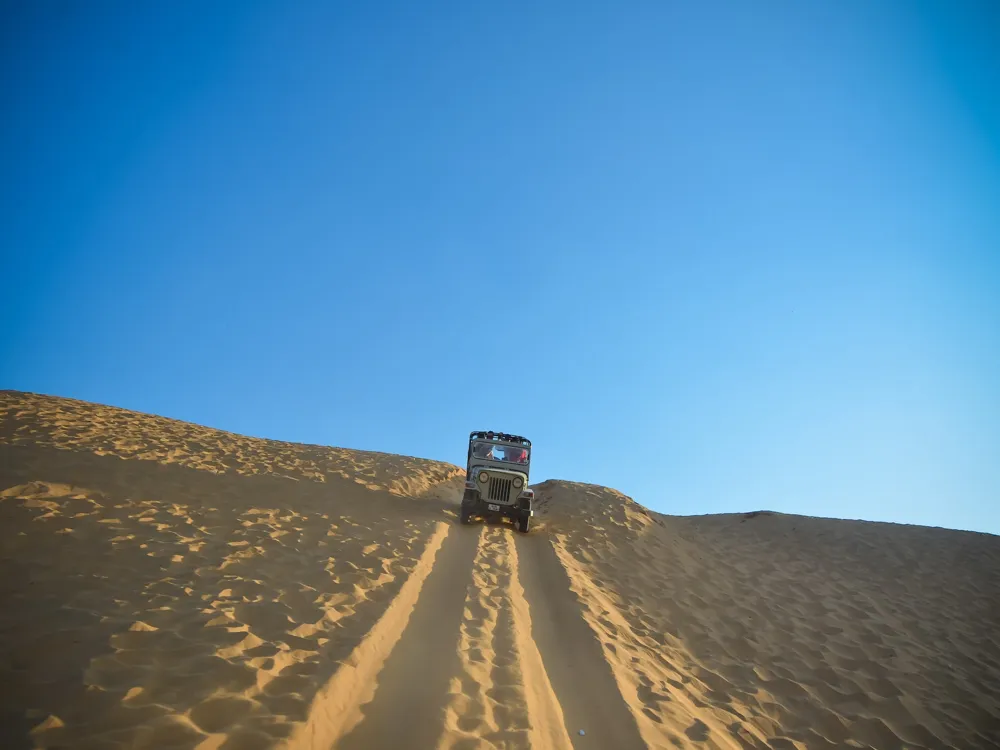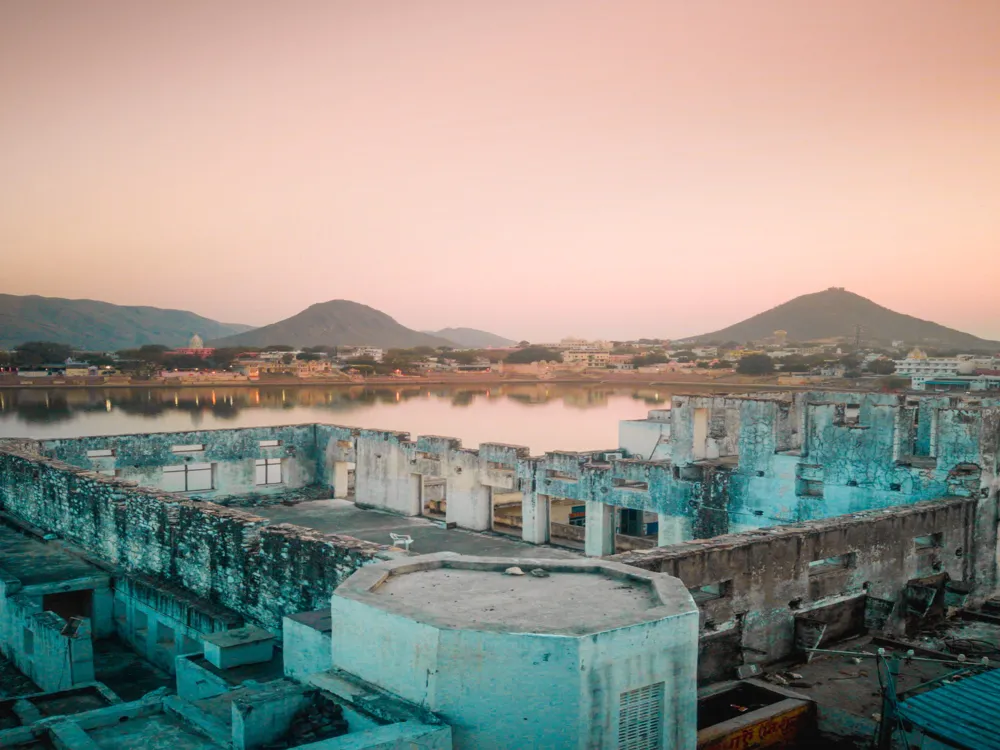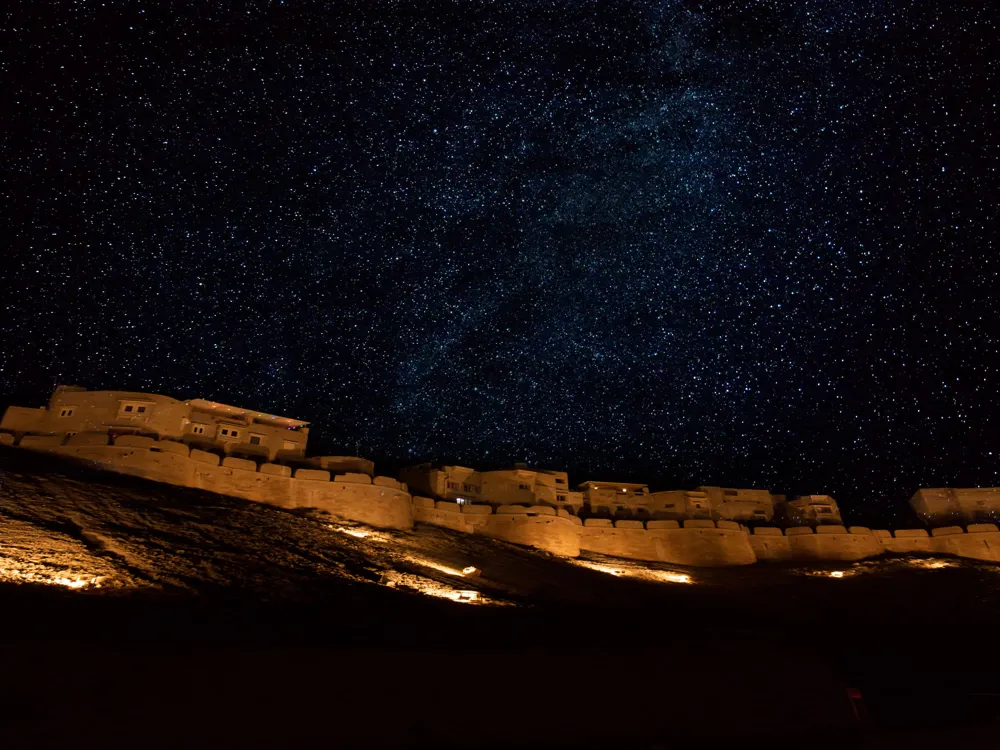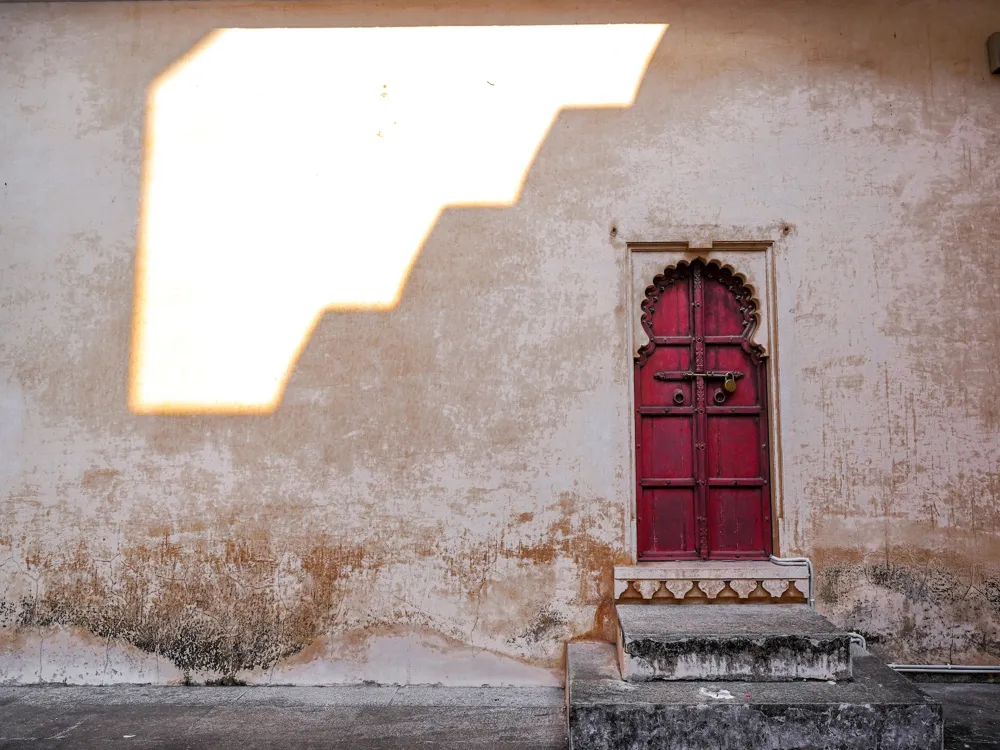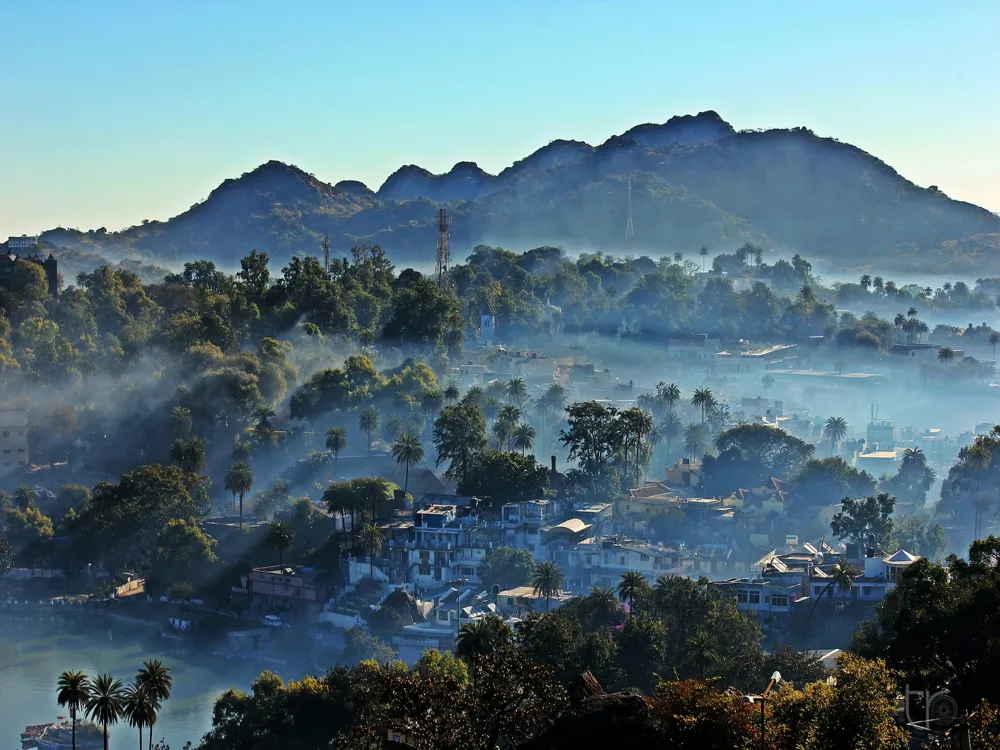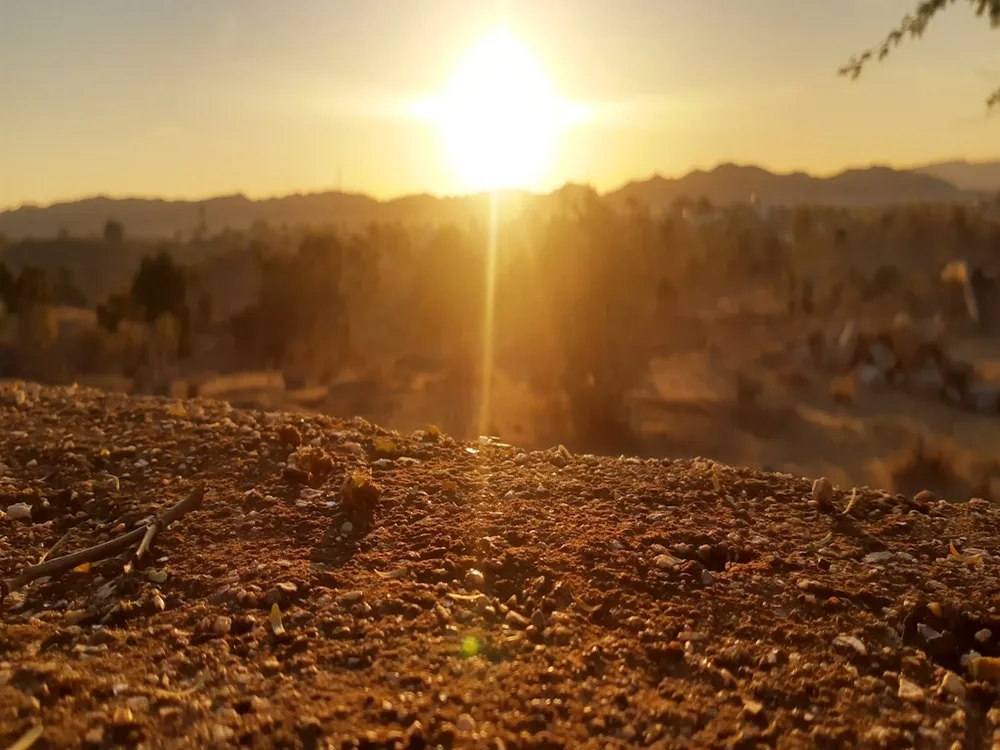Phalodi, often referred to as the 'Salt City' due to its extensive salt industries, is a fascinating town in the Jodhpur district of Rajasthan, India. Known for its rich history and cultural heritage, Phalodi holds a special place in the heart of Rajasthan. Founded in 1488 AD by Rao Hammir Narawat, a prince of the Marwar (Jodhpur) dynasty, Phalodi has been a witness to various historical events and shifts in power. The town's name is derived from 'Phalvaridhika,' indicating its prosperity in earlier times. The climate in Phalodi is typically arid, with extreme temperatures in both summer and winter. This town gained international recognition for recording the highest temperature in India at 51°C. Despite the challenging climate, Phalodi remains a vibrant hub of activity and culture. The town's economy is primarily based on salt production and handicrafts, including textile embroidery and mojari (traditional Rajasthani footwear) making. Phalodi's unique charm lies in its blend of historical and modern elements. The town is dotted with ancient havelis (mansions), temples, and forts, showcasing the architectural brilliance of bygone eras. Among these, the Phalodi Fort and Lal Niwas are notable for their intricate designs and historical significance. The town is also a paradise for birdwatchers, with the nearby Khichan village serving as the winter home for thousands of migratory Demoiselle Cranes. The local culture of Phalodi is a rich tapestry of traditional Rajasthani customs, cuisine, and festivals. Festivals like Holi and Diwali are celebrated with great enthusiasm, featuring colorful processions, folk music, and dance. The cuisine of Phalodi is a delightful experience, with local specialties like Ker Sangri, Dal Baati Churma, and Bajre ki Roti offering a taste of authentic Rajasthani flavors. The architectural heritage of Phalodi Jodhpur is a testament to the artistic and cultural grandeur of Rajasthan. The town's buildings are a harmonious blend of Rajput and Islamic architectural styles, reflecting the historical influences of different rulers. One of the most striking features of Phalodi's architecture is the use of red and yellow sandstone, which gives the buildings a distinctive, warm hue that glows under the Rajasthani sun. The Phalodi Fort, a masterpiece of Rajasthani architecture, stands tall in the heart of the town. Built by Rao Hammir Narawat, the fort's imposing structure features intricately carved jharokhas (balconies), courtyards, and a series of gates. The fort's design showcases both defensive and aesthetic elements, with thick walls and bastions for protection and beautifully decorated interiors reflecting the lavish lifestyle of the Rajput rulers. Another architectural marvel is the Lal Niwas, a red sandstone haveli built in the 1750s. This haveli is renowned for its stunning frescoes and murals depicting scenes from Hindu mythology, local legends, and everyday life of the era. The fine craftsmanship and attention to detail in Lal Niwas are exemplary of the artistic skills of the local craftsmen. The Jain temples of Phalodi are also notable for their architectural beauty. These temples, dedicated to various Tirthankaras, are adorned with intricate carvings, sculptures, and gold work. The temple of Mahavira, the 24th Tirthankara, is particularly famous for its splendid art and architecture. The ideal time to visit Phalodi is between October and March when the weather is relatively cooler and more pleasant. Auto-rickshaws and taxis are readily available for local travel. For an authentic experience, try a camel safari. Phalodi offers a range of accommodations, from traditional havelis converted into heritage hotels to budget-friendly guesthouses. Don't miss trying the local Rajasthani dishes like Ker Sangri and Dal Baati Churma, available at most restaurants. Respect local customs and traditions. Dress modestly and seek permission before photographing people. Phalodi is well-connected by road, rail, and air. The nearest airport is Jodhpur Airport, about 135 kilometers away. Phalodi Railway Station is well-connected to major cities like Delhi, Mumbai, and Jodhpur. For road travel, Phalodi is accessible via National Highway 15 and other state highways, with regular bus services from major cities in Rajasthan. Read MoreOverview of Phalodi Jodhpur, Rajasthan
Architecture of Phalodi Jodhpur
Tips When Visiting Phalodi Jodhpur
Best Time to Visit
Local Transportation
Accommodation
Local Cuisine
Cultural Etiquette
How To Reach Phalodi Jodhpur
Jodhpur Tourism
Phalodi Jodhpur
Jodhpur
Rajasthan
₹ 12,000 onwards
View jodhpur Packages
Weather :
Tags : Town
Entry Fee : No entry fee
Planning a Trip? Ask Your Question
Jodhpur Travel Packages
View All Packages For Jodhpur
Top Hotel Collections for Jodhpur

Private Pool

Luxury Hotels

5-Star Hotels

Pet Friendly
Top Hotels Near Jodhpur
Other Top Ranking Places In Jodhpur
View All Places To Visit In jodhpur
View jodhpur Packages
Weather :
Tags : Town
Entry Fee : No entry fee
Planning a Trip? Ask Your Question
Jodhpur Travel Packages
View All Packages For Jodhpur
Top Hotel Collections for Jodhpur

Private Pool

Luxury Hotels

5-Star Hotels

Pet Friendly







